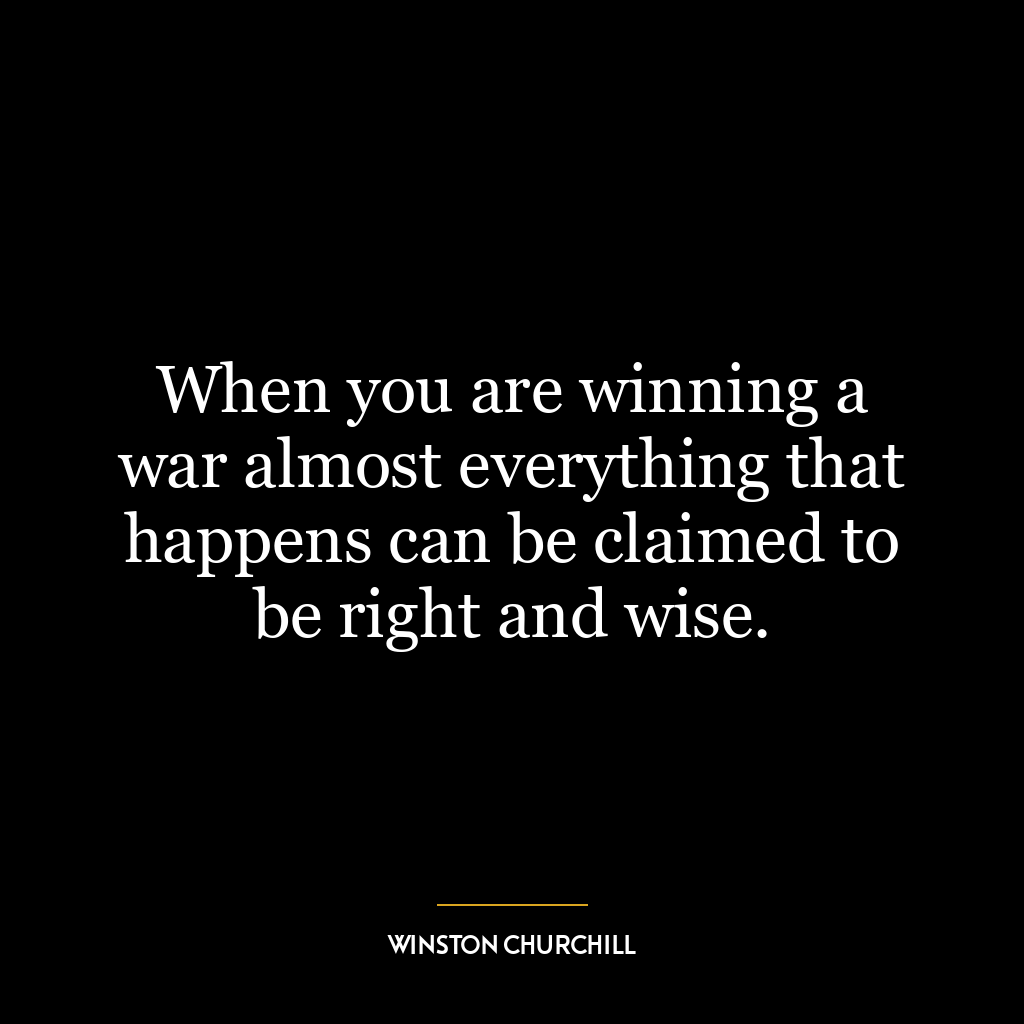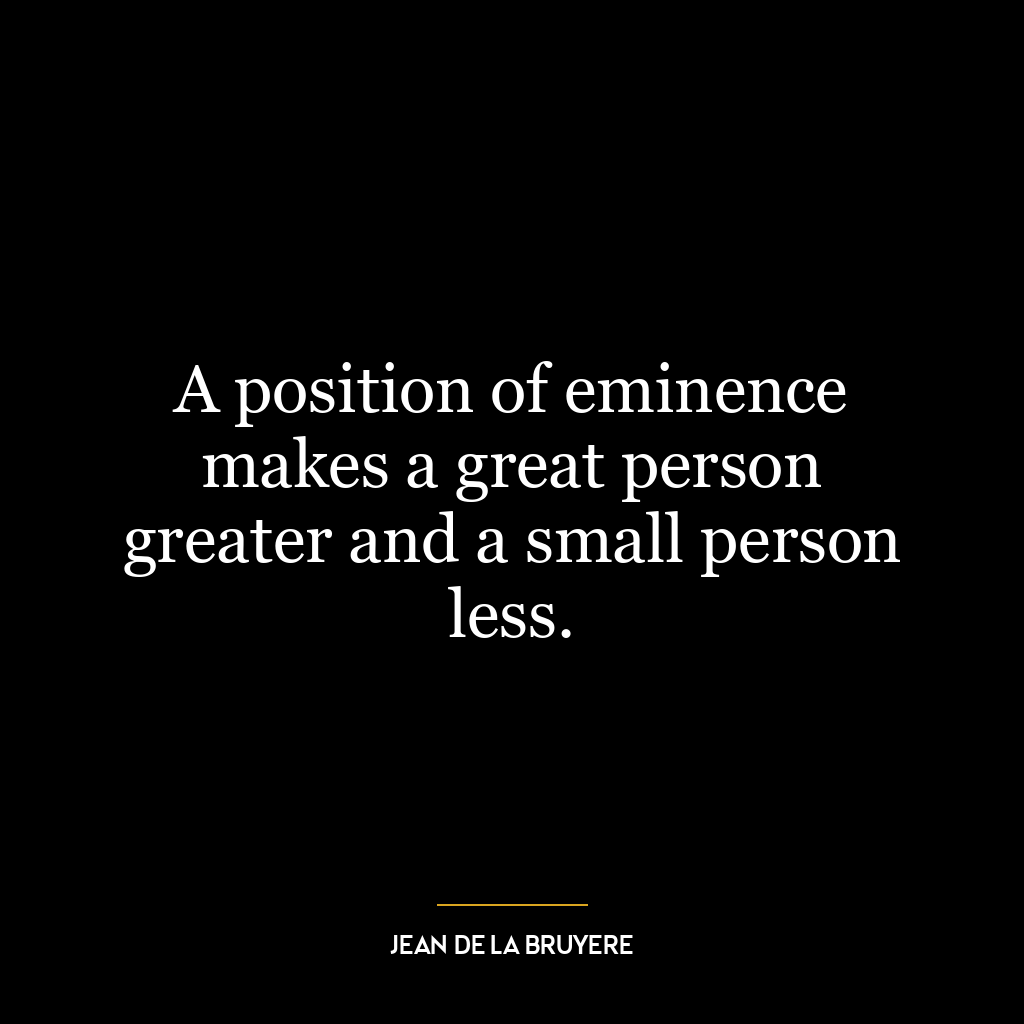When you are winning a war almost everything that happens can be claimed to be right and wise.
This quote suggests that when you are on the winning side, your actions and decisions are often perceived as correct and wise, regardless of their actual merits. This is because victory tends to justify the means, overshadowing any questionable decisions or tactics used in the process. The moral, ethical, or strategic soundness of these actions often goes unquestioned when the outcome is successful.
This concept is not limited to warfare but is applicable to any situation where there is a competition or struggle. For instance, in business, a company that is performing well in the market might make risky or ethically dubious decisions. However, as long as they are successful, these decisions are often overlooked or even praised.
In politics, a leader who is popular and successful may make decisions that, under scrutiny, could be seen as unwise or unjust. Yet, these decisions are often accepted and even applauded because of their winning position. This can lead to a dangerous lack of accountability.
In personal development, this quote can be applied to the idea of self-improvement and goal achievement. Often, when individuals are successful in achieving their goals, they believe that the steps they took to get there were the right ones. However, this may not always be the case. Success can sometimes be achieved despite certain actions, not because of them. This can lead to overconfidence and the belief that one’s approach is infallible.
In today’s world, this quote encourages us to question the actions of those in power and those who are successful. It reminds us to critically analyze the steps taken to achieve success, not just the end result. It teaches us not to blindly accept the decisions of the victorious but to scrutinize them for wisdom and righteousness.















